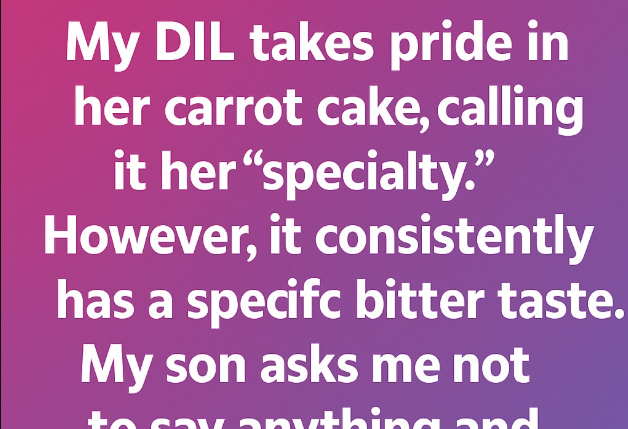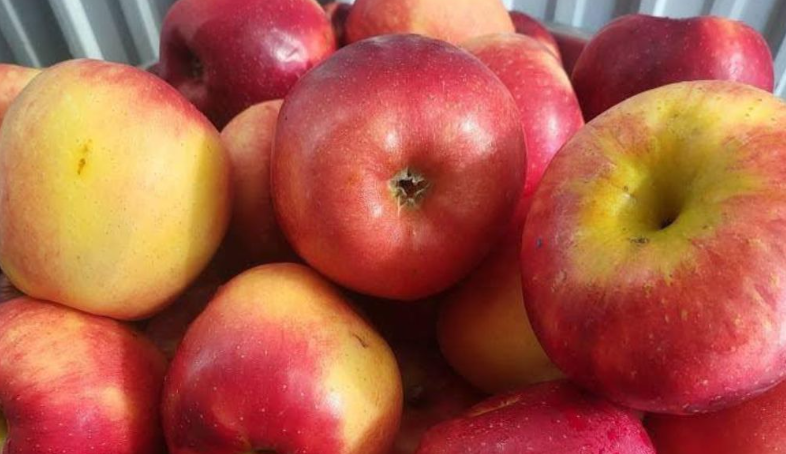My daughter-in-law, Emily, cherishes her carrot cake, proudly naming it her “signature dish.” Yet, each time she serves it, I notice a distinct bitter undertone. My son, David, quietly urges me to stay silent and show kindness toward her efforts. Yesterday, I stood frozen when I caught him murmuring to her, “Mom’s beginning to think you’re…”
His words trailed off as he spotted me nearby. Emily’s face flushed, her fingers tightening around the mixing bowl as if it could steady her. “That you’re what?” I asked gently, keeping my voice warm and inviting. David let out an awkward chuckle and said, “That you’re… putting in too much nutmeg this time.” They both offered strained smiles, but the atmosphere hinted at an unspoken truth lingering between them.
The following day, as Emily worked in the kitchen, I offered my assistance. She paused briefly before handing me a vegetable peeler with a shy nod. While we prepared ingredients side by side, she let out a soft sigh and said, “I’m sorry about the cake, Mom. I know it doesn’t taste quite right. I’ve been using stevia instead of sugar — my doctor recommended it for my health.” A wave of realization hit me, tinged with regret. All along, I’d been critiquing the flavor, unaware that she was carefully managing her condition while still pouring her heart into creating something special for our family.
When the cake emerged from the oven, I took the first warm slice. The familiar hint of bitterness remained, but now it carried a new meaning — it spoke of Emily’s devotion, strength, and thoughtfulness. I looked at her, smiled, and said, “It’s wonderful.” And I truly meant it. Sometimes, life’s true sweetness comes not from sugar but from the quiet efforts of those who strive to bring joy to others, one heartfelt cake at a time.







